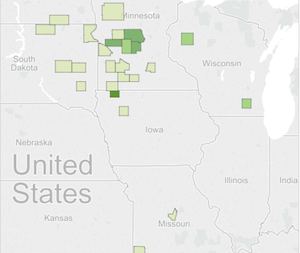The old rules don't apply.
That's step one in understanding how to keep or attract young people in churches today, according to the Rev. Carol Howard Merritt, who is leading a workshop on the topic this weekend at Rivermont Presbyterian Church.
"If our churches are going to grow, especially with younger generations," she said, "we have to look beyond looking at our sons and daughters who grew up in the church. We have to look at adoption."
By that, Merritt, a pastor of Western Presbyterian Church in Washington, D.C., means congregations must seek young people who have never grown up in church, grown up in different denominations or grown up in different faith styles.
"We need to be welcoming to anyone who's thinking and wondering what spirituality is all about," she said.
Merritt, 39, said 18 percent of young people in college have never set foot in a church.
And the post-World War II model in which young families automatically raise their children in the church no longer holds, she said.
That has changed, Merritt said, because people marry later (if at all), have children later and may have to work on Sunday. In addition, she said, many women work, and the assumption that a woman will want to work, pick up the children from child care, come home, prepare dinner, do a load of laundry and go to church to run a worship committee is not realistic.
Too often, she said, churches, especially ones of mainline denominations, unintentionally "set up barriers" such as ones of time and class that keep people from attending churches.
While many churches have been effective in gearing specific services to Generation X or Millennials attendees, there are others ways for churches to reach out to young people, Merritt said.
At Western Presbyterian, she said, opportunities were offered, unintentionally at first and later intentionally, for intergenerational interaction. College children were invited to play with young children, for instance, and people starting in their career had opportunities to receive advice from people preparing for retirement.
On another occasion, Merritt said, people from their 20s through their 60s in a Lenten study were asked to share how God guided them in a decision they had to make. The participants, she said, learned there are "a lot of people who are really living out their faith in their work."
Following such interactions, she said, she often hears from younger people how much the connections mean to them.
Mainline denominations, specifically, but many other denominations as well, Merritt said, also are frequently involved in social justice issues in which young people are often interested.
The median age of Presbyterians in Presbyterian (U.S.A.) churches such as Western is 61, according to denominational statistics.
With that in mind, Merritt said the denomination and other mainline churches like it are not likely to compromise their outreach to their core constituency in order to reach out to young people.
"What's important to think," she said, "is what can we do to reach all generations. If it makes [the church] look a little different, it's more important that [the church] has a faith that goes from generation to generation."
